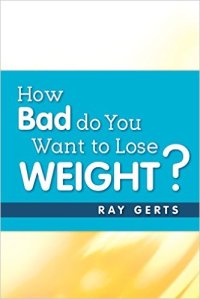The Promise
Your oven gets a rest on this diet. You'll mostly be eating raw fruits, vegetables, and grains.
There's been lots of talk lately about eating raw foods. I understand and that's why most recipes don't boil foods any more. They claim all the nutrition ends up in the water you throw out.
The idea is that heating food destroys its nutrients and natural enzymes, which is bad because enzymes boost digestion and fight chronic disease. In short: When you cook it, you kill it.
Some fans of raw food diets believe cooking makes food toxic. They claim that a raw food diet can clear up headaches and allergies, boost immunity and memory, and improve arthritis and diabetes. To take this one step further, Some believe that modern pots and pans cause a lot of our health problems. Example, cooking in Aluminum cook ware and cookware that has a coating inside.
What You Can Eat and What You Can't
Think uncooked, unprocessed, mostly organic foods. Your staples: raw fruits, vegetables, nuts, seeds, and sprouted grains. Some eat unpasteurized dairy foods, raw eggs, meat, and fish. I will eat Sushi but I don't know about raw meat. Meat contains chemicals like growth hormones that are feed to cattle. Your food can be cold or even a little bit warm, as long as it doesn’t go above 118 degrees. You can use blenders, food processors, and dehydrators to prepare foods.
Level of Effort: High
You may need to ramp up your kitchen skills. Eating out can be tricky, and if you go organic, you may need to go to specialty stores for a wider selection than your usual grocery store.
Cooking and shopping: Prep work can be extensive. Many raw food fans become experts at blending and dehydrating foods. Some germinate nuts and sprout seeds. I'm not that into it, but I do believe you can buy all you need in specialty stores. A raw food diet will give you a lot of fiber so You won't eat as much as you think. You want to buy foods in small amounts and shop more often. People on this diet will usually take supplements usually protein power along with others. This is for the organic crowd so you'll be drinking mostly water and maybe wine on occasion.
Because some uncooked and unpasteurized foods are linked to food-borne illness, you’ll need to wash your food thoroughly and be extra careful with risky foods like sprouts, raspberries, unpasteurized juices, green onions, and lettuce.
This can be a very healthy way of eating, all natural a lot like farmers eat. But if your not growing your own food and raising your own chickens and catching your own fish you want to read up on this type of diet before you jump right in.
This can be a very healthy way of eating, all natural a lot like farmers eat. But if your not growing your own food and raising your own chickens and catching your own fish you want to read up on this type of diet before you jump right in.
Due to the risk of food poisoning, a raw foods diet isn't recommended for pregnant women, young children, seniors, people with weak immune systems, and those with chronic medical conditions like kidney disease.
gettingtoahealthyweight.blog
E-books are the easiest and cheapest way to learn about any subject without groping through hundreds of websites looking for the material you want.
My first e-book is “HowBadDoYouWantToLoseWeight” and it sells for $2.99 on most online bookstores like Amazon.com, BN.com, iBook, Kobo.com, Scribd.com, and Gardner books in the U.K.
My second e-book is available in the same stores. And on smashwords.com. If you use the Smashwords' promotional code You can get my second book for $1.99 (TL96R). Just type in the search line “getting to a healthy weight”.



/about/GettyImages-165562928-567adfe63df78ccc15555c85.jpg)
/about/GettyImages-91559463-567ae03a3df78ccc15555ca1.jpg)
/about/GettyImages-172674777-567ae1463df78ccc15555d4a.jpg)
/about/GettyImages-155358161-567ae1895f9b586a9e8c05b8.jpg)
/about/GettyImages-184302084-567ae2765f9b586a9e8c0638.jpg)
/about/GettyImages-AA026368-567ae37b5f9b586a9e8c133f.jpg)
/about/GettyImages-532878345-56a5b7a55f9b58b7d0de1a15.jpg)



